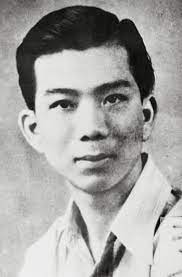On stuff outside of lemmygrad, we are receiving a lot of hate, especially by those who just moved from Reddit. Guess they lost their hidden privilege at Reddit as their rhetoric used to be almost universal over there, while genzedong and our other subs get censored and banned. And now, on lemmy, their stuff isn’t universal, as we are more prevalent here. Seems like they really want that hidden privilege back


You’ve missed the rest of the quote, and indeed the whole point of the complete text you are quoting:
https://www.marxists.org/archive/marx/works/1872/10/authority.htm
Are you opposed to revolts against monarchies in favour of mass participation polities, like the French Revolution? Unfortunately, history shows that violent revolts are far more successful than peaceful ones, and if the goal is to establish a proletarian-led democracy, then the reactionary forces NEED to be contained by any means necessary.
Any attempts for peacefully enacting change against the ruling classes, have resulted in, either violent oppression from the ruling class and failure, or in successful change then an incremental regression back to the previous conditions.
Pacifist purists (Engels’ anti-authoritarians) are in essence supporters of the status quo.
deleted by creator
Here is one such document for anyone that is curious: https://www.cia.gov/readingroom/docs/CIA-RDP80-00810A006000360009-0.pdf
that’s the one 👍
Thank you I had been looking for this
deleted by creator
Then I suggest you read further through the link I provided, and furthermore educate yourself on what Marxists actually believe, before accusing them.
I dismiss this claim whether you are referring to Lenin or Stalin. In both cases there’s ample evidence to the contrary. This perception is mostly formed by Western propaganda.
Anarchists say those sorts of things. Not me. Yes the goal of communism is to EVENTUALLY create a stateless society. But to do that, we first need to a) hold a revolution, b) supress counter-revolution, c) be able to defend the revolution from external enemies, and d) eliminate the bourgeoise as a class.
That last part doesn’t presuppose we eliminate them by killing them necessarily, but we need to curb their immense political and economic power, and to do that we need a state that can actually stop them from creating a counter-revolution. In the exact same vein, I’ll reuse the example of the French revolution, which eliminated the aristocracy as a class, so as to be able to actually found a democratic nation.
And of course the other function of the state is to be able to defend itself from external threats. To do that we need the most “authoritarian” structure of all, i.e. a functional army, with a functional industrial capacity behind it to support it.
We can sit back now and say that the Soviet Union was an “authoritarian” state, but we shouldn’t forget what it went through to survive. In its first 30 years of history, the Soviet Union went through 2 world wars (both devastating for it), 2 revolutions, a civil war (which had the added component of 8 major powers invading at the same time), 2 other wars, and a full economic blockade, and all that while trying to transform itself from a feudal empire into a socialist industrialized democracy. Without a state to protect itself, the Soviet Union would be a footnote in the history books right now, much like the Paris Commune and the Spanish Republic.